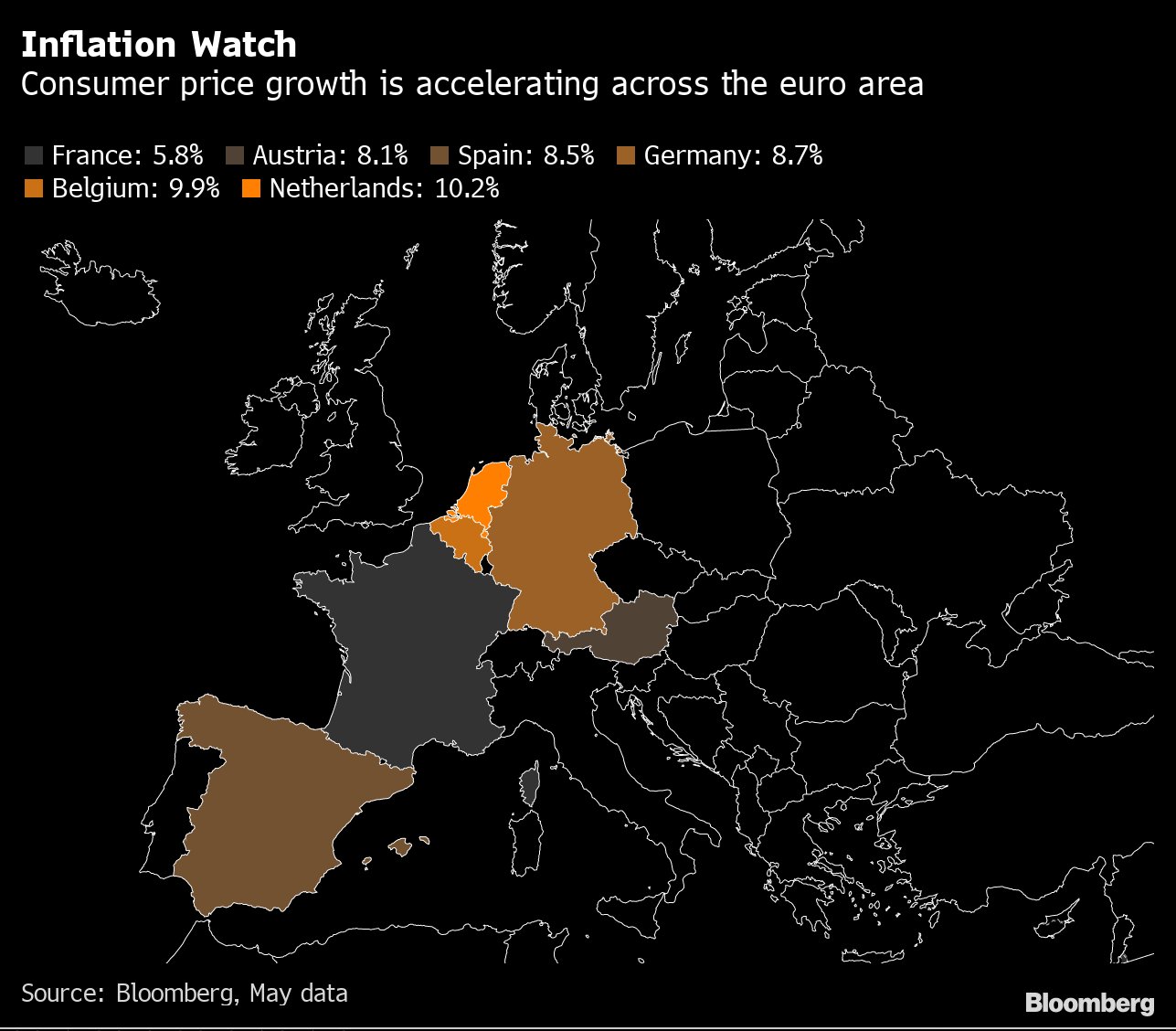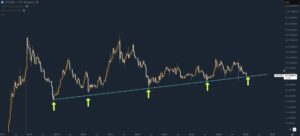Eurozone prices marched higher in May, with inflation hitting an all time high for the seventh consecutive month as the ECB loses its monetary grip.
The astronomically high reading for the month came from preliminary data from Europe’s stats office on Tuesday, up from April’s 7.4% and higher than expectations of 7.8%.
Inflation prints from a number of major European economies registered strong upside momentum too. Germany’s (harmonised) inflation figures came in at 8.7% in May, significantly surpassing expectations of 8% and marking a steep incline from the 7.8% figure seen in April.
Cryptocurrencies aren’t going away. Buy Bitcoin & Litecoin here.
As noted by economist, Holger Zschaepitz on Twitter, Germany’s inflation is now higher than the 1970’s, all the while the European Central Bank has maintained interest rates at 0% for the time being.
Just to put things into perspective: Germany’s #inflation has hit fresh ATH in May at 7.9% – even higher than in the 1970s BUT #ECB‘s main rate remains pegged at 0%. pic.twitter.com/XD5mBNheG0
— Holger Zschaepitz (@Schuldensuehner) May 30, 2022
French data showed inflation figures followed a similar trajectory, up to 5.8% from 5.4% in April, while harmonised Spanish consumer prices rocketed to 8.5% in May, exceeding expectations of 8.1%
All over the Eurozone, the record yearly consumer price hikes were partly spurred by soaring energy costs due to the conflict in Ukraine, which hit 39.2% (up from 37.5% in April) and a 7.5% increase in food, alcohol and tobacco prices (up from 6.3%).

But even without energy and food price increases, official inflation figures soared from 3.5% to 3.8%, Eurostat added.
These figures echo the ECB’s counter-part, the US Federal Reserve, which is also attempting a balancing act to both fight inflation while avoiding a recession. But raising interest rates has done little to impact inflation in the United States so far, with the latest April figure coming in at 8.3%, down modestly from 8.5% in March.
Earlier this month, European Central Bank President Christine Lagarde said she was expecting a rate rise at the central bank’s meeting in July.
“Based on the current outlook, we are likely to be in a position to exit negative interest rates by the end of the third quarter,” she wrote in a blog post. “If the euro area economy were overheating as a result of a positive demand shock, it would make sense for policy rates to be raised sequentially above the neutral rate.”
The ECB’s governing council will meet on June 9, and then on July 21.
What’s causing inflation?
The overarching mainstream theme is that energy prices are driving inflation in the Eurozone. But inflation rates in the West have been setting record highs since Q2 2021, seven months before the Ukrainian conflict escalated into war.
source: tradingeconomics.com
Central bankers have been missing inflation targets for years as their balance sheets ballooned into the trillions following aggressive monetary and fiscal policy expansion in 2020 led by the US Federal Reserve. The ECB followed suit, with its balance sheet now standing at €8.8 trillion.
source: tradingeconomics.com
In 2022, the US Federal Reserve front-ran other central banks by being the first to raise interest rates. Additionally, the Fed has stated it will begin reducing its balance sheet by about $1.1 million every minute starting in June. That roll-back will ramp up to $2.2 million per minute in September, per their forward guidance.
However, the effects of the sheer size and scope of money printing that occurred over the last two years has so far rendered attempts to roll-back inflation inadequate. The ECB’s La Garde is now poised to follow the Fed’s Jerome Powell, which threatens a deep recession in the Eurozone as the economic slowdown intensifies due to the rising costs of capital and increasing supply constraints in the bloc.
Having exhausted the monetary tool box, central bankers are in a doom loop – caught between a rock and a hard place. This threatens ongoing ‘sticky’ inflationary conditions while simultaneously slowing economic activity as interest rates rise. In May 2022, legendary investor and hedge fund manager Paul Tudor Jones warned investors to stay away from stocks and bonds, while underlining that “it’s hard not to want to be long crypto”.
Join the telegram channel for updates, charts, ideas and deals.
Did you like the article? Share it!


